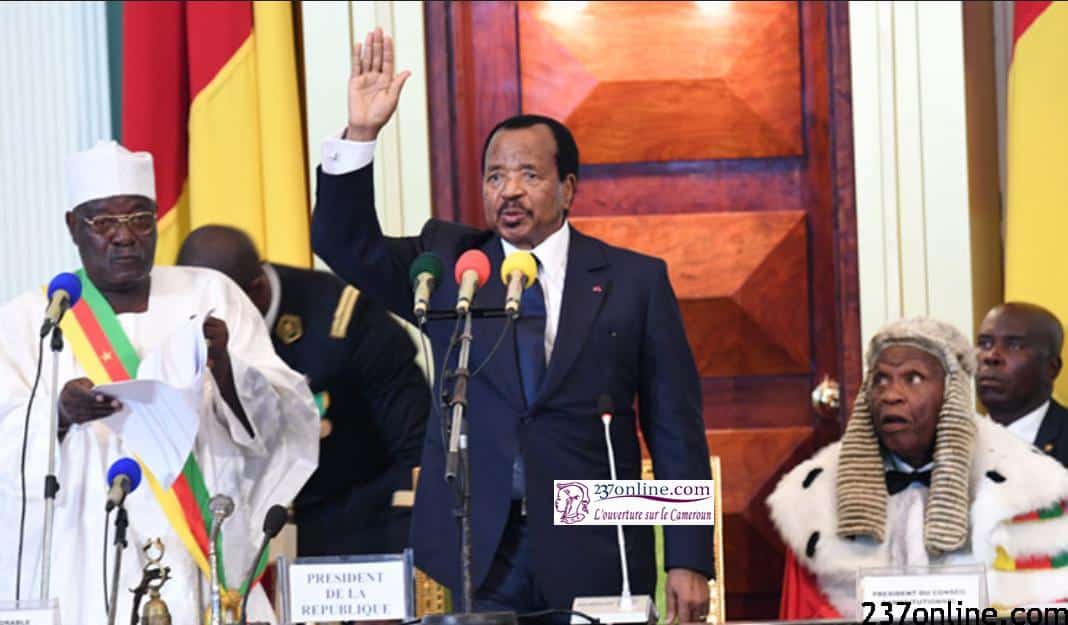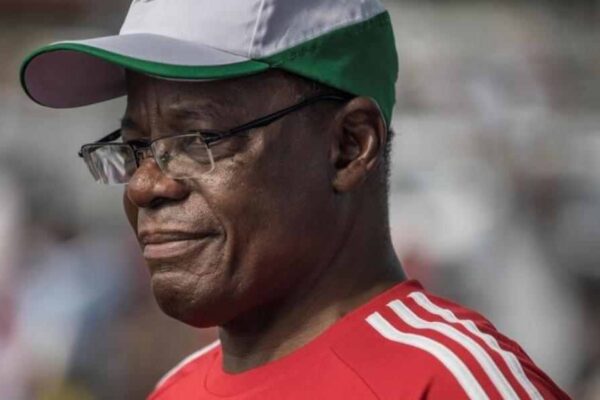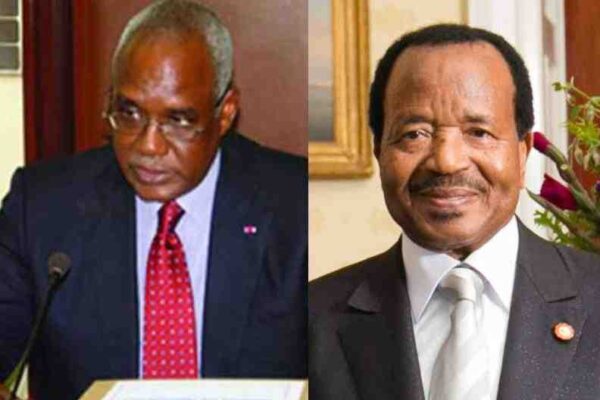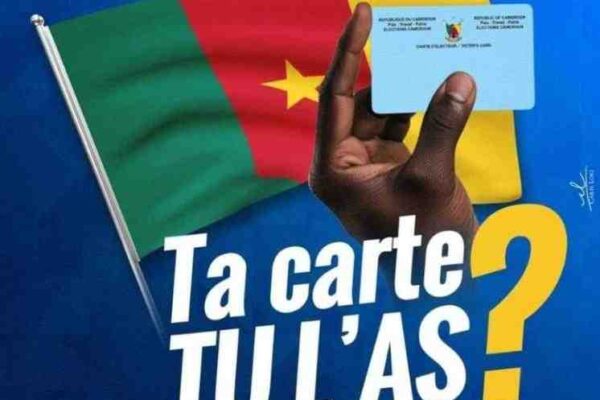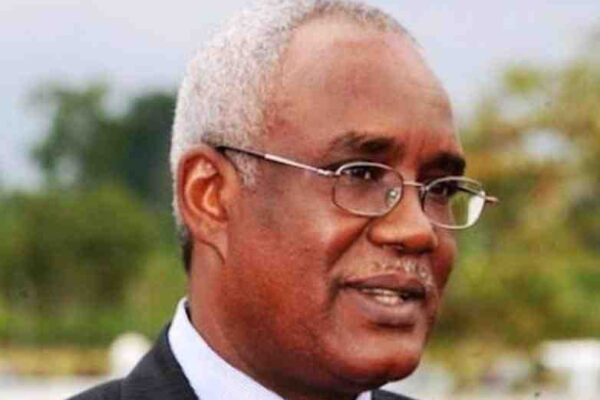The Head of State, President Paul Biya clocks 37 years in power today. He ascended to that position on November 6, 1982.
The gains made within key sectors of the polity in these years have come sometimes under unpredictable circumstances and a cost. Major changes recorded in Cameroon under President Biya’s leadership have mostly come through grassroots agitations. The country’s distinct bilingual and bicultural heritage has often come to play each time a major national action is to be taken.
Intriguingly, some of these changes have come at the cost of lives of Cameroonians especially Anglophones groomed with a notion of always putting power to question. In President Biya’s years of leadership, Anglophones have always taken an appointment with destiny to question certain actions and policy implementation.
The results of such Anglo-Saxon quest to have things done the right way have always ended up benefiting the entire nation. Cases abound under the ‘New Deal’ regime of changes which came through Anglophone agitations. Today, regime songbirds are rather giving the glory to the Head of State for having taken such actions. Yet political analysts argue that it is rather President Biya who should be thanking Anglophones most for the milestone of his stewardship this far.
Historic oath-taking
On November 6, 1982, then House Speaker, the late Solomon Tandeng Muna, confidently administered the oath of office to Biya as Ahidjo’s constitutional successor. Muna, who wielded a lot of influence then, by that constitutional act, transferred Anglophone support to President Biya. It is an oath like no other President Biya has ever taken in his lifetime. Northerners, at that time, read the handwriting that Anglophones had already endorsed Biya in addition to the people of the South. They thus had no option than to support the new leader. That Muna’s action has been described till date as a secret pact that empowered Biya into his presidency.
Fon of Fons
In 1983, Biya visited Bamenda for the first time to launch the agric show. He returned to Yaounde a different man. North West Fons united, fortified and raised him to the enviable position of Fon of Fons. Till date, observers hold that President Biya mystically survived the 1994 coup d’état due to the fortification from the North West Fons. Across the grassfield, it is a norm that once made a Fon, one is empowered with supernatural protection. Such is said to be the blessing that Biya has enjoyed till date. This, analyst say, accounts for the reason why the president has remained strong and has never lost any battle.
1984 coup d’état
Biya again savoured Anglophones’ benevolence during the attempted coup d’etat in 1984. It was an Anglophone technician at then Radio Cameroon, Achu Samba, who switched off the high frequency support system to frustrate the message of the coup plotters from being broadcast across the country.
Accomplices of the coup plotters in other parts of the country, who were waiting for the broadcast on radio, did not get it and failed to take action in joining the coup. This, historians have said, was one of the immediate causes of the coup’s failure. Within the same period, Biya’s bodyguard then Captain and now General Ivo Yenwo, is said to be the person who protected the president from harm. In the heat of the attack, Yenwo, an Anglophone, is said to have preserved the life of the man still presiding over the destiny of Cameroon. Yenwo saved Biya from the trap of the coup plotters.
Creation of CDPM
By 1985, Biya was again in Bamenda. This time the Cameroon National Union, CNU, was dissolved and a new party, Cameroon People’s Democratic Union, CPDM, was created. Anglophones, who attended that congress overwhelmingly, voted for Biya as chairman of the CDPM. He still occupies that position till date. Pundits say this alone shows how important Anglophones are to Biya’s political career.
Politics
Barely six years in power, Biya faced the reality of the quest for democracy that was threatening most governments in Africa. In 1990, it was Fru Ndi, an Anglophone who ventured into the vaporous climate to forcefully launch the Social Democratic Front, SDF party. This came against the spilling of the blood of English-speaking Cameroonians at ‘Liberty Square’ in Bamenda. Six Anglophones paid the ultimate price on May 26, 1990 during the launching of the SDF. Records retain the names of; Tifoh Mathias Teboh (student), Toje Evaristus Chatum (student) Asanji Christopher Fombi (student), Nnfon Edwin Jatop, corn mill operator and Fedilis Chosi Mankam as those who died on that day. While Bamenda was in the heat of the political storm, echoes of Fru Ndi’s actions provoked university students in Yaounde. By 1p.m. same day Carrefour Orly opposite the University restaurant then became unpredictable. Students song prodemocracy songs and demanded a return to multiparty politics.
The powers that be drafted security forces to contain the gatherings in Bamenda and Yaounde. The then mayor of Yaounde, Emah Basil, made a negative reading of the demands. On May 28 1990, Emah made his infamous “enemis dans la maison” claptrap. The next day, then Territorial administration Minister, Ibrahim Bombo Njoya, granted an interview to the stateowned Cameroon Tribune, urging those who do not feel Cameroonian to look elsewhere. Contrary to such anti-democratic reactions, President Biya succumbed to the pressure which Fru Ndi had ignited in Bamenda. Today, the political landscape is awash with over 200 parties.
Fru Ndi, an Anglophone, practically arm-twisted Biya to succumb to the return of multiparty politics to Cameroon. Today, President Biya is on record to be remembered as the man who brought democracy to Cameroon. Yet observers hold the strong view that, he should be thankful to an Anglophone, Fru Ndi, for taking a bold move to concretise the many voices back then that clamoured for a return to multiparty politics.
March 1992 parliamentary elections
Political observers remark that Fru Ndi’s boycott of the parliamentary elections in March 1992 played to the advantage of President Biya. Though it was a political miscalculation, analysts insist that if the SDF under Fru Ndi’s leadership had contested that election, Biya would have long kissed goodbye to the presidency. Despite the SDF’s boycott, the CDPM could still not have a majority in parliament. Biya, however, saw his political career revived thanks to an Anglophone, the late Hon. Samuel Ngeh Tamfu from Donga Mantung division of the North West region.
Tamfu, then lone CPDM politburo member from the North West, is reported to have raised a motion for recess during the first parliamentary session after the election. During this period, he is said to have used his intellect without first informing President Biya to convince Dakolle Daisalla of the MDR to form an alliance with the CPDM. The six seats from the MDR, through an Anglophone, Tamfu, saw the CDPM carry out parliamentary business with ease. It had won only 88 seats in that legislature.
The electoral code and other important documents of national important were voted. That is how the CPDM blocked a two round voting system and is still calling the shots till date thanks to Tamfu’s bold and witty move. That would have been the end of President Biya’s reign, if not for an Anglophone, S.N. Tamfu. Pundits say on this score, the president should be appreciative of Anglophones for that historic political move that has prolonged his stay in power.
1992 presidential election
Cameroon would have slipped into a civil war following the October 1992 elections wherein SDF supporters claim Fru Ndi won. Analysts say if Anglophones, and Fru Ndi in particular, didn’t behave themselves, the nation would have been buried in chaos. At that time, the international community was seen to be signaling to support a civil war in Cameroon. Yet, Fru Ndi, an Anglophone, said “I can’t walk on the blood of Cameroonians to take power”. On the occasion of his 37th anniversary in power, observers say Biya should be indebted to an Anglophone, Fru Ndi, for putting on such a human face against the leisure of power.
AAC I, AAC II
The All Anglophone General Conferences, AAC I and AAC II, which grouped all well-meaning Anglophones in Bamenda and Buea respectively, is said to have been partly due to the anger of Fru Ndi’s supposed ‘stolen victory’. Anglophone elite emerged from these meetings begging for more time to be given to President Biya. If not the momentum would have added headache to Biya’s leadership. Added to this, the birth of Southern Cameroons National Council, SCNC, with a separatist agenda, failed to gain the support of key Anglophone elite.
Watchers say the President of the Republic should be thankful to a majority of Anglophones who, despite such movements, have maintained firm believe in the unity and indivisibility of Cameroon. Biya, analysts assert, should be rather be thankful that key Anglophone elite have, despite the threats to the nation’s unity from secessionists movements, remained mobilised to maintain Cameroon in one piece. To this end, they say instead of celebrating, he should rather be thankful. Among them is SDF’s John Fru Ndi who, despite widely believed to have won the October 1992 presidential election, has dissociated his party from secessionist movements.
Presidential majority
In 1992 when the CPDM of President Biya was virtually in search of alliances, it took another Anglophone, El Hadj Lawan Bako, to institute the presidential majority. This alliance has in no small way contributed to sustain Biya in power.
Admission into the Commonwealth
That President Biya prides himself as the second world leader presiding over the destiny of a bilingual country. This is thanks to Anglophones. Cameroon shares this attribute only with Canada. The country was admitted into the Commonwealth November 1995. This organization, held in high esteem across the globe, is because of its English-speaking population. International relations expert say the gentleman’s club wields more influence across the world than any other organsiation to which the country is a member. The aura of Cameroon across the globe has been enhanced with its membership in the Commonwealth. The nation has reaped benefits through scholarships and other bilateral acts simply because Anglophones.
Education
The defining moments of Cameroon’s educational landscape date to 1993. The Baccalaureate and the General Certification of Education, GCE, Boards were created. These came after close to a decade of Anglophone solidarity demands. Groups such as the Teachers’ Association of Cameroon, TAC, Confederation of Anglophone Teachers’ Trade Union Association, CAPTAC, churches and other interest groups in the English-speaking regions clamoured for this. Yet the BAC Board was first created before the GCE Board. The country today boasts of running two distinctive education boards with vibrant assessment institutions thanks to Anglophone pressure groups.
Anglophone private press
If separatist movements have not been able to make any headway in their quest for a virtual state, media experts say, it is because the Anglophone private press has not given them any attention. They say the Anglophone media has rather reported the event staying professional without any iota of sentiments attached. The Anglophone press, experts in media and conflict reporting hold, has remained vital and patriotic in covering the crisis.
Fallouts of Anglophone crisis
In three years of the crisis lingering in the North West and South West regions, some changes have happened thanks to Anglophones. Cameroonians did not see these changes for over 34 years of President Biya’s leadership. Until the crisis, there was no Common Law Division at the Supreme Court tailored to meet the needs of the English-speaking population. The same is true for the National School of Administration and Magistracy, ENAM.
The translation of the OHADA laws from French to English was also done only when Common Law lawyers started protesting. Government bothered less about having such done in civility. Today, English is gradually gaining a spot in key national events partly due to the frankness of Anglophones on the way the country is managed. For 34 years of Biya’s leadership, these adjustments were not forthcoming despite being a bilingual country. There is the creation of the National Commission for the Promotion of Bilingualism and Multiculturalism, NCPBM. President Biya, still within the context of the crisis, created a National Disarmament, Demobilisaion and Reintegration, NDDR, commission. This is to handle ex-Boko Haram and separatist fighters. This institution did not see the light of day in the days when only the terrorist group, Boko Haram, started attacking communities in the Far North regions.
A 22-year-old provision in the 1996 constitution for the Constitutional Council only saw light of day on February 7, 2018. The same constitution makes bold the place of decentralisation within the governance apparatus yet it has taken the current crisis in the North West and South west for government to start talking of effective decentralisation. Added to these is the potential granting of a special status for the two restive regions. This too was proposed at the recently held Major National Dialogue was also convened principally because of Anglophone demands. When such measures yield fruits, regime supporters have always twisted the narrative to sing glory to the President of the Republic. Yet 37 years on, many believe that Anglophones have been the axle on which Biya’s leadership has been reshaped for all these years.
